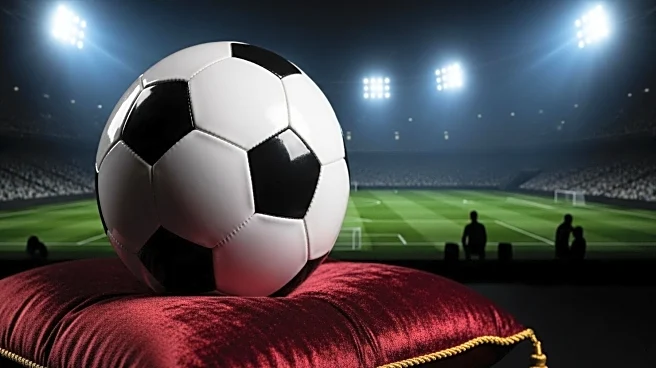What's Happening?
Paris Saint-Germain (PSG) has expressed strong dissatisfaction with the French Football Association (FA) following injuries sustained by two of its players, Ousmane Dembélé and Désiré Doué, during international duty. Dembélé, considered a contender for the Ballon d'Or, suffered a serious hamstring injury, while Doué sustained a calf strain. Both injuries occurred during France's match against Ukraine, leading to significant absences for PSG in upcoming fixtures, including a Champions League match against Barcelona. PSG has accused the French national team of causing 'significant sporting consequences' and has called for immediate corrective measures to prevent such incidents in the future.
Why It's Important?
The injuries to key players like Dembélé and Doué highlight the ongoing tension between club and national team commitments. Clubs invest heavily in their players and rely on them for crucial matches, yet international duties can lead to injuries that disrupt club performance. This situation underscores the need for better coordination and agreements between clubs and national teams to protect players' health and ensure their availability for important club matches. The financial and competitive stakes are high, as clubs like PSG face challenges in maintaining their performance in domestic and international competitions.
What's Next?
PSG's call for corrective action may prompt discussions between clubs and national teams to establish protocols that minimize injury risks during international breaks. This could involve revisiting player workload management and medical advice adherence. The situation may also lead to broader conversations within the football community about balancing player commitments to clubs and national teams, potentially influencing future agreements and policies.








